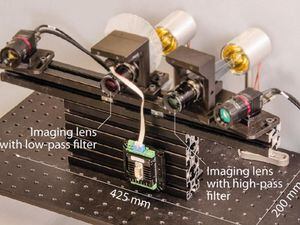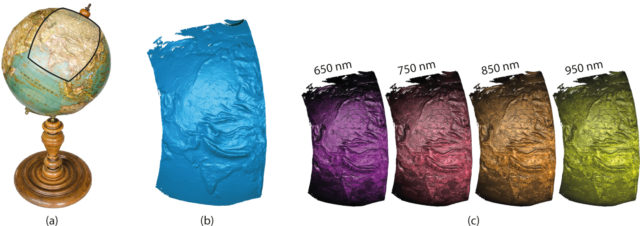This prototype camera captures images in five dimensions
The device uses multiple wavelengths of light and spatial coordinates to establish depth information of the objects.

Engineers have developed a camera system deemed capable of taking photos in five dimensions.
The so-called “5D” process involves establishing depth information by capturing data using multiple wavelengths of light and using spatial coordinates as a function of time – creating well-defined spacial positions for every instant of time – in what is much like how our eyes capture a scene from two slightly different directions.
The device records high-quality images at a rate of 17 frames per second.
Called the 5D hyperspectral imaging system, because it detects hundreds of spectral colours – or wavelengths – instead of the three detected by normal cameras, the gadget makes use of two cameras operating in the visible to near-infrared range.
By identifying specific features of the object from both camera views, the device then creates data points capturing the surface of the object in x, y and z coordinates.

To demonstrate the application, the researchers used their device – which is about the size of a laptop – to digitally document a historical relief globe from 1885.
They also created 5D models of a person’s hand and showed their system could be used to detect veins.
The researchers say camera systems such as these could, in future, be used for security purposes as well as medical imaging and even grocery shopping.
Stefan Heist is the research team leader at Friedrich-Schiller University, Jena, and the Fraunhofer Institute for Applied Optics and Precision Engineering in Germany.
He said: “Our approach combines excellent spatial and spectral resolution, great depth accuracy and high frame rates in a single compact system.”
The research is published in the journal Optics Express.





